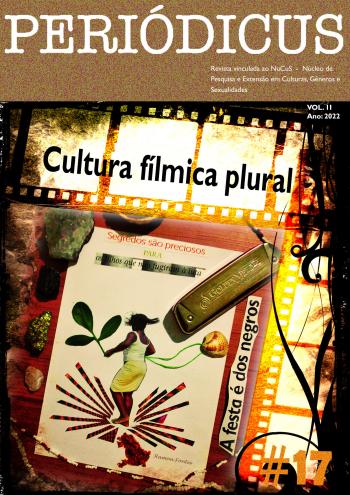Beyond the binary
how discourses affect non-binary people’s access to gender-affirming healthcare
DOI:
https://doi.org/10.9771/peri.v2i17.45466Abstract
This text is a Portuguese translation of the Senior Thesis written by the north american author Lori Puopolo (PUOPOLO, 2018). Their study is based on researches that evidence how healthcare professionals use a transmedicalist
point of view to limit the access of trans people to gender-affirming heallthcare, in order to understand how the discourses diffused by them affect, specially, the access of non binary people to gender-affirming healthcare. Puopolo notices that these specialists resort to a dominant discourse about transgender individuals so as to control the bodies of non binary people. On acount of this discourse, they internalyze the medical perspective about transiotioning, thereby delaying their treatments. Puopolo discloses that non binary people utilyze the Internet to discuss and inform themselves about the options involving the medical transition, noticing that as they gather more information, they become more willing to search access to the procedures desired.
Downloads
Downloads
Published
How to Cite
Issue
Section
License
Copyright (c) 2022 Jude de Oliveira Bento da Silva

This work is licensed under a Creative Commons Attribution-NonCommercial 4.0 International License.
Autores que publicam nesta revista concordam com os seguintes termos:
Autores mantêm os direitos autorais e concedem à revista o direito de primeira publicação, com o trabalho simultaneamente licenciado sob Licença Creative Commons Attribution Noncommercial que permite o compartilhamento do trabalho com reconhecimento da autoria e publicação inicial nesta revista, sendo vedado o uso com fins comerciais.
Autores têm autorização para assumir contratos adicionais separadamente, para distribuição não-exclusiva da versão do trabalho publicada nesta revista (ex.: publicar em repositório institucional ou como capítulo de livro), com reconhecimento de autoria e publicação inicial nesta revista.
Autores têm permissão e são estimulados a publicar e distribuir seu trabalho online (ex.: em repositórios institucionais ou na sua página pessoal) a qualquer ponto antes ou durante o processo editorial, já que isso pode gerar alterações produtivas, bem como aumentar o impacto e a citação do trabalho publicado (Veja O Efeito do Acesso Livre).







